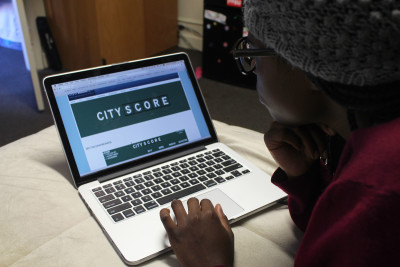
Boston Mayor Martin Walsh announced Friday the launch of CityScore, an initiative that will allow city officials to quickly track and improve the City of Boston’s performance in everyday life.
CityScore, the first of its kind, is a data-based system that collects various metrics from city departments each day and scores them based upon Boston’s performance goal or the city’s historic performance in a certain area, according to a Friday press release. The system will monitor the public safety, education, economic development, innovation and technology realms of the city, as well as “constituent satisfaction.”
Walsh said in the release that he was proud to begin an original data initiative that reasserts Boston’s commitment to delivering exceptional services to constituents through swift problem solving.
“The City of Boston is using data in a way that no city has ever done before,” Walsh said in the release. “I am proud to launch this data platform that recommits us to our pledge of transparency and delivery of excellent city services. This overview of city metrics allows us to take immediate action within our departments to improve city services to make our city safer and smarter.”
Through CityScore data, city officials will be able to compare and evaluate performance ranging from one day to multiple months, the release stated.
Boston’s Citywide Analytics Team unveiled the original development of CityScore through Boston Chief of Staff Daniel Koh during a TEDxCambridge talk in October, The Daily Free Press reported on Oct. 16.
Chief of Streets Chris Osgood, who helped develop CityScore, explained in the release how Boston is trying to give the best services possible to its residents.
“Our team’s goal is to provide the best basic city services in the nation,” Osgood said in the release. “CityScore helps us track our progress and has already been successful in helping us deliver better services to residents. This will be a great tool for us moving forward.”
Christopher Dwelley, Boston’s citywide performance manager, said CityScore has begun to successfully help government officials evaluate important services provided to residents.
“We’re already seeing how data can help folks here in the city understand their own operations [by] seeing and identifying areas where we can potentially ask questions or look at long term trends or immediate areas for intervention,” he said.
Dwelley said that Boston residents appreciate the new information that is readily available to them.
“People have had a positive reaction to it,” he said. “They appreciate its transparency. They appreciate being able to understand very quickly and easily how the city is performing. [They don’t have to] make a call to someone in particular or digest three data sets. It’s all right there on the page.”
Dwelley added that city officials encourage residents to go online to view CityScore for themselves and leave feedback.
“We want to make sure people are reaching out to us to get us that feedback so we can use [it] to make sure we’re incorporating [it] into future iterations of the CityScore,” Dwelley said.
Several residents voiced their support for CityScore, but some expressed concerns of the new data strategy’s potential weaknesses.
Kittle Evenson, 26, of Brighton, said she approves of the city using a data-driven initiative to improve daily performance. However, she is cautious of potential problems CityScore’s data usage from public apps could create.
“Sometimes when you have user-supplied information, people who supply that information tend to be either dissatisfied or exceptionally satisfied,” she said. “I still think that it’s a smart sample to grab, I just think it’s just a risk [to focus] on that information.”
Kelly Kate-Crossland, 23, of Brighton, said the risk of biased interpretation grows when the city is solely responsible for evaluating and tracking its performance.
“The only problem I have with a single entity interpreting the data is that it’s a single way of interpreting numbers,” she said. “I don’t really know if the city is already in control of those numbers, how it will interpret its own performance. I know when I’m given data about myself, I tend to interpret that data quite [positively].”
Sarah Ameri, 25, of Kenmore, said the simplicity of the CityScore system seems like a helpful approach for residents moving to Boston because the data would provide a glance at the services available in the city.
“It would be a really good idea to try out because a lot of people like an easy way to gauge what is the best place to start a family,” Ameri said. “[CityScore] would be a helpful baseline, at least at the beginning.”






















































































































